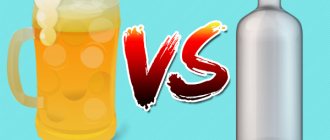Glycine is part of proteins and is a metabolite. It regulates the activity of neurons, metabolism, and also stimulates and at the same time calms the nervous system. Based on it, drugs are produced in the form of powder, capsules, sublingual tablets and dragees.
Now Foods, Glycine, 1000 mg, 100 Veggie Caps
★★★★☆
from 718 ₽
More details
Pharmacological properties
Glycine regulates metabolism, normalizes and triggers protective inhibition processes in the central nervous system, increases mental performance, and reduces psycho-emotional stress. It is characterized by antitoxic, antioxidant, glycine- and GABA-ergic, α1-adrenergic blocking effects. The drug is a regulator of the activity of glutamate (NMDA) receptors, which reduces conflict, aggressiveness, improves social adaptation, reduces the toxic effects of alcohol and other drugs that depress the functions of the central nervous system, and improves mood. Glycine also reduces the severity of brain disorders in traumatic brain injury and ischemic stroke, eliminates vegetative-vascular disorders (including during menopause), facilitates falling asleep and normalizes sleep.
Pharmacodynamics
Precise information on the pharmacodynamics of Glycine has not been provided.
Pharmacokinetics
The drug easily penetrates into most tissues and biological fluids of the body, including the brain. The substance is metabolized to form carbon dioxide and water and does not accumulate in the body.
How long can you take glycine?
The length of treatment often depends on the diagnosis and the individual's characteristics. The standard course of therapy is a month. Then take a break for 1-2 weeks and continue taking the pills.
The amino acid has a cumulative effect, so a one-time dose of the medicine will not give any results. At the same time, you should not drink glycine for years. If after several courses of use there is no improvement in your well-being, you should consult a doctor to change the drug.
Indications for use
- Decreased mental performance;
- Deviant forms of behavior in children and adolescents;
- Psycho-emotional stress, stressful situations (conflict situations, exam periods);
- Ischemic stroke;
- Various organic and functional diseases of the nervous system, accompanied by emotional instability, increased excitability, sleep disturbance and decreased mental performance: neuroses, vegetative-vascular dystonia (VSD) and neurosis-like conditions, consequences of traumatic brain injuries and neuroinfections, perinatal and other forms of encephalopathies (including including those of alcoholic origin).
Description of the drug
Glycine for insomnia is an absolutely safe sedative. The medicine helps regulate metabolism in the body and improves all intellectual abilities. It is an effective remedy for insomnia, as it improves the quality of dreams and facilitates the process of falling asleep.
Glycine also has the following effects:
- prevents sleep problems;
- helps reduce diseases affecting veins and blood vessels;
- fights depression and irritability;
- normalizes vision;
- reduces love for alcohol;
- enhances thinking abilities;
- eliminates muscular dystrophy.
With a properly calculated dosage, the drug has only a beneficial effect.
Instructions for use of Glycine: method and dosage
Glycine tablets should be administered buccally or sublingually at 100 mg (whole or in powder form after crushing).
In practically healthy adults and children with reduced mental performance, memory and attention, psycho-emotional stress, mental retardation, deviant forms of behavior, Glycine is prescribed 2-3 times a day, 1 tablet. Duration of treatment is 2-4 weeks.
Children under 3 years of age with lesions of the nervous system (organic and functional), which are accompanied by increased excitability, sleep disturbances and emotional lability, are prescribed 2-3 times a day, 1/2 tablet (50 mg) for 1-2 weeks. Subsequently, for 7-10 days, Glycine is taken once a day. The daily dose is 100-150 mg, the course dose is from 2000 to 2600 mg. Adults and children over 3 years of age are prescribed 100 mg 2-3 times a day. The average duration of a treatment course is 1-2 weeks. If necessary, therapy can be carried out for 1 month. According to indications, it is possible to conduct a repeat course with an interval of 30 days.
If you have sleep disturbances, the drug should be taken immediately before bedtime or 20 minutes before bedtime. Depending on age, the dose may vary between 50-100 mg.
For ischemic cerebral stroke, Glycine is administered sublingually or buccally with one teaspoon of water at a dose of 1000 mg during the first 3-6 hours after the onset of stroke. The drug should be taken at the same dose for 1-5 days. Over the next 30 days, tablets are taken 3 times a day, 1-2 pieces.
In narcology, the drug is used as a means of increasing mental performance, as well as to reduce psycho-emotional stress during the period of remission in case of organic lesions of the central and peripheral nervous system and phenomena of encephalopathy. Glycine is usually prescribed for 14-30 days, 2-3 times a day, 1 tablet. If necessary, courses can be repeated (4-6 times a year).
How many tablets can you take at once?
When studying the annotation for the tablets, you should understand that it is advisory in nature. In some situations, the dose of the drug may be increased or decreased. The reasons for changing the dosage are the following factors:
- Age. The medicine can be taken by elderly people and given to infants. This point must be taken into account when calculating the daily amount of the drug.
- Purpose of application. The dose of glycine also depends on the indications. If in case of sleep disturbances it is enough to eat one tablet at night, then to get rid of stress you will need to drink 2-3 tablets at once.
- Individual characteristics. If there are contraindications or intolerance to the active substance, the quantity of a single serving is reduced. Only a doctor can help adjust the dosage and achieve the maximum effect of treatment.
There are cases where adults drank 50–100 glycine tablets at a time without experiencing any deterioration in their health. Such a practice cannot be considered the norm. If for one person the increase in dosage passed without consequences, another may experience many side effects, ranging from headaches to impaired consciousness.
Use during pregnancy and lactation
The use of the drug for disorders of the functioning of the nervous system during pregnancy and lactation is permissible, but only after consultation with a specialist who will determine the woman’s health status and individually select a therapeutic dose.
Clinical studies of the safety of Glycine for pregnant women have not been conducted, so in this category of patients it is prescribed with caution, taking into account contraindications and side effects.
It is allowed to take Glycine tablets during lactation due to its mild effect on the body. The concentration of the substance in breast milk is insignificant, but you should consult your doctor before starting treatment.
Possible consequences of increasing dosage
There are no known cases of glycine overdose. But they are possible. If you take too many tablets, adverse reactions will occur:
- allergy;
- feeling tired, lethargic, apathy;
- drowsiness;
- state of psychosis;
- headache;
- irritability, aggression.
If the medication is intolerant, schizoid disorders, epileptic seizures, and convulsions may develop. If an adult patient suffers from hypotension, his blood pressure will drop and a headache will appear.
Reviews about Glycine
Now there are numerous reviews about Glycine, which is often prescribed to older children and even newborns. Many patients claim that they often undergo treatment with the drug because it helps normalize sleep and reduce stress. It also has virtually no contraindications and is affordable.
Parents claim that the use of Glycine in children gives very good results soon after the start of therapy. However, there are also reports of the drug being ineffective. Doctors speak positively about the drug, claiming that it is absolutely harmless and can be used even in infants to combat hypertension and anxiety. Adverse reactions of the drug are occasionally mentioned, including individual intolerance and allergic reactions. Glycine should be used only after consultation with a specialist and in accordance with the developed treatment regimen.
Analogs
Synonyms of Glycine, i.e. drugs with the same active ingredient are: Glycine forte, Glycine Ozone, Glycine-MHFP, Glycine-Bio, Glycine-Bio Pharmaplant, Glycine-Canon.
The following drugs also belong to the same pharmacological subgroup (“Psychostimulants and nootropics”) and have a similar mechanism of action: Amylonosar, Acefen, Bravinton, Vero-Vinpocetine, Vinpotropil, Vinpocetine, Vincetine, Ginkgo Biloba, Ginkum, Gopantam, Demanol, Idebenone, Cavinton , Calcium hopanthenate, Carnicetin, Cogitum, Combitropil, Cortexin, Lucetam, Memotropil, Minisem, Neuromet, Noben, NooKam, Nooclerin, Noopept, Nootropil, Omaron, Pantogam, Pantocalcin, Picamilon, Picanoil, Pikogam, Piracesin, Piracetam, Pyriditol, Semax, Telektol, Phezam, Ceraxon, Cerebrolysate, Cerebrolysin, Encephabol, Escotropil, etc.
Side effects
When taking Glycine, there is a possibility of developing an allergic reaction, which manifests itself in the form of hyperemia of the dermis, itching, rashes, allergic rhinitis, and shortness of breath. Do not exclude dangerous manifestations of allergies:
- Quincke's edema;
- swelling of the larynx;
- anaphylactic shock;
- diarrhea;
- vomit;
- pallor and cyanosis of the epidermis;
- a sharp narrowing of the bronchi and larynx, which leads to difficulty breathing.
If serious reactions occur, call an ambulance.
Can there be complications from taking Glycine at night?
Using Glycine at night can cause insomnia and dizziness if the dose is exceeded. This often happens when a person wants to “pass out” faster and dissolves 2 or more tablets at once.
Insomnia in this case is caused by an excess of activity-stimulating substances produced by the drug by the body itself. After all, Glycine affects neurotransmitters that synthesize joy hormones. And instead of sleep, a person wants to urgently do something. And the cause of dizziness is a decrease in blood pressure. This, in turn, is caused by the relaxation of muscles and blood vessels provided by the drug.
The product can also provoke allergies, that is, redness of the skin, itching, rashes, and discharge from the nasal passages. In more serious cases, Quincke's edema develops, diarrhea and vomiting occur. Here you need to stop taking Glycine, take an antihistamine, and in case of severe manifestations, immediately seek help from doctors.
What foods contain glycine?
Large amounts of glycine are found in protein-fortified foods:
- Meat and fish, animal liver.
- Cottage cheese.
- Eggs.
- Products containing gelatin: jelly, jellied meat, marmalade, etc.
- Legumes: soybeans, lentils, chickpeas, peas, beans.
- Nuts: peanuts, walnuts, pistachios.
- Cereals: buckwheat, oatmeal, pearl barley.
- Wheat products: pasta and bread.
A person's daily need for glycine is about 5-7 grams, 3 of which the body synthesizes independently, and another 1.5-2 grams comes to us with food.
A larger amount of glycine is needed when playing sports, in case of injury, heart attacks and strokes.
Daily norm of glycine
The body produces glycine on its own. A person receives some more amino acids from food. Its highest content is observed in eggs, cottage cheese, gelatin, poultry, beef and beef liver, buckwheat and oatmeal, marmalade, soy, nuts, chickpeas, ginger, pumpkin seeds and sesame.
If a person eats well, he receives about 1.5 g of glycine with food, and about 3 g is synthesized by his body. The total amount of amino acid in this case corresponds to the daily norm, which varies from 3 to 7 g.
With poor nutrition, impaired absorption in the gastrointestinal tract and some other conditions, glycine deficiency may occur. Athletes also need higher doses of it. The solution for them is to use tablets and dietary supplements with this amino acid.
Amino acid overdose
Glycine poisoning is an extremely rare occurrence. The human body does not accumulate the amino acid in tissues in volumes that exceed what it needs.
The threat of overdose arises only in case of excessive use of dietary supplements containing glycine. If a person takes them for a very long time and in high doses, the following symptoms may appear:
- increased heart rate;
- allergies;
- skin rash accompanied by itching;
- vomiting;
- digestive disorders;
- increased fatigue.
These symptoms usually do not pose a threat to life or health. A person’s well-being is restored after discontinuing the drug or adjusting the dosage.
Why is glycine deficiency dangerous?
A lack of glycine in the body occurs extremely rarely, as does its excess. This amino acid is found in many foods, so it is not so difficult to meet the natural need for it.
A whole range of circumstances lead to disruption of glycine levels in the body - excessive consumption of fast food and alcohol, taking certain medications, infections, injuries, stress, imbalance of nutrients in the body and gastrointestinal disorders.
An acute lack of glycine forces the body to use up its own reserves of this amino acid. As a result, various negative effects develop:
- general weakness and exhaustion;
- slowdown in growth, physical and intellectual development;
- memory impairment;
- weakened immunity, which creates the ground for the development of stress and infectious processes;
- mood swings and depression;
- deterioration of the condition of hair, nails, skin;
- slowing down the formation of proteins and disrupting the structure of connective tissue;
- muscle tremors;
- chronic insomnia;
- digestive disorders.
Benefits and harms of use
Considering the advantages and disadvantages, the drug has many more advantages. Glycine has a mild effect and is not addictive. The drug improves the quality of sleep, reduces the number of awakenings, and allows you to get a good night's sleep until the morning. The medication also suppresses the occurrence of the negative effects of psychotropic drugs.
Negative aspects include the possibility of adverse reactions. If the dose is incorrectly calculated, overdose symptoms may appear.
Useful properties of Glycine Forte from Evalar
Glycine Forte produced by "Evalar" has a therapeutic and prophylactic effect due to the combination of glycine and B vitamins (B1, B6, B12), its main beneficial properties:
- reduction of increased excitability, irritability;
- improving mental performance, memorizing and processing new information;
- normalization of the central nervous system, helping it to withstand stress;
- restoring the duration and depth of sleep, making it easier to fall asleep.
It is important to take into account that Glycine Forte “Evalar” is a dietary supplement, so it should be used primarily for prophylactic purposes, and in case of illness, use the medication Glycine in combination with vitamins (for example, Neurobion).
We recommend reading about the benefits of Glycine Forte. From the article you will learn about the characteristics of the drug, instructions for use, side effects, differences from regular Glycine. And here is more information about how much Glycine you can take per day.
Glycine is contraindicated in case of intolerance to the components or low blood pressure. Due to unproven safety, it is not used during pregnancy or breastfeeding. Drivers and when taking sleeping pills and sedatives at the same time should take into account the risk of drowsiness.
Why is Glycine placed under the tongue?
Glycine is available in the form of sublingual tablets, that is, they need to be placed under the tongue: the medication must gradually dissolve in order to penetrate into the blood as quickly as possible and pass through the barrier between the vascular bed and the brain. Drugs that are absorbed through the oral mucosa act 4 times faster than when swallowed.
If you chew Glycine, it first enters the stomach, intestines, and then is only absorbed into the blood. Therefore, it is not recommended to change the method of administration of the drug (chew or simply swallow). The tablets have a sweetish, quite pleasant taste. Glycine needs to be dissolved by placing the tablet under the tongue, or placing it behind the cheek and waiting for complete dissolution.
For problems with swallowing and for infants, sublingual use is not possible. It can be difficult to dissolve and swallow if you have a sore throat or sore throat. For such categories of patients, you must first crush the tablet to a powder and dissolve it in 5 ml of water. You can do the same thing if resorption for some reason causes discomfort.
When should you increase your Glycine dose?
The drug should be taken according to the instructions, that is, no more than 3 tablets (300 mg) per day. The use of a large dose of the drug at one time (10 tablets or 1000 mg) is due to ischemic stroke or situations close to it.
If the goal of taking Glycine is to improve performance and mood, protect against central nervous system overload, prevent various diseases and maintain the desired level of amino acid in the body, there is no need to increase the dosage.
Remember that to achieve a therapeutic effect, it is important how to take Glycine, and not how many times a day. Glycine is applied sublingually or buccally. It is this taking of the drug that will provide the desired effect. If you just take the pills orally, there will be no harm, but there will be no positive effect either.
Proven benefits of glycine
- Eliminates inflammatory reactions.
- Slows down the wasting of muscle fibers.
- Improves the formation of basic biological catalysts.
- Regulates the activity of the thumus.
- Coordinates the work of the brain, bone marrow and spleen.
- Takes part in the formation of blood cells.
- Reducing the death of brain cells, which is important after strokes.
- Reduces cravings for alcohol and eases hangovers.
- Removes toxins from the body.
Studies have been conducted that have proven that glycine helps slow down the growth of cancer tumors. This is due to the fact that the drug slows down the proliferation of blood vessels that feed tumors. Glycine can also regulate blood pressure. This is relevant for the prevention of strokes. Therefore, many hypertensive patients use the drug for high blood pressure.
Side effects and contraindications
The drug does not cause serious side effects in case of overdose. In rare cases, allergic reactions, nausea or dizziness may occur. The main contraindications include the following:
- Sensitivity to the components of the drug.
- Low blood pressure.
If you are predisposed to arterial hypotension, discuss the dosage with your doctor. And if you take the drug, monitor your blood pressure.
Note. Glycine is a non-addictive drug. It can be used even with minor sleep disturbances.
Glycine Forte: contraindications
Glycine Forte is produced by several manufacturers; tablets have different compositions and contraindications. For example, a drug produced by Canonpharma Production differs from the usual one only in its increased dosage (250 mg). Therefore, it is also prohibited for intolerance and low blood pressure, pregnancy and breastfeeding.
Glycine Forte "Evalar" has a wider range of contraindications: it is not prescribed to patients if there have been allergic reactions to vitamin B1, B6 or B12 in the past. This dietary supplement is used only for adult patients. It is imperative to consult a doctor before using the tablets if:
- menopause and premenopausal period;
- peptic ulcer of the stomach and duodenum;
- gastritis with increased acidity of gastric juice;
- pancreatitis during exacerbation;
- severe liver and kidney diseases;
- coronary heart disease (angina pectoris, recent heart attack);
- increasing the level of red blood cells in the blood;
- benign and malignant tumors;
- increased blood clotting, thrombosis.











